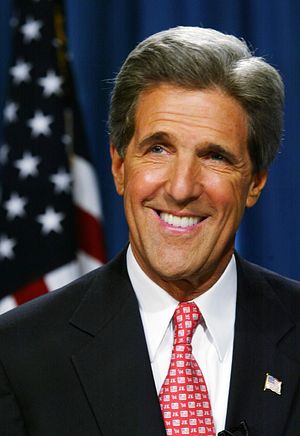A few South Asia links to wrap up the week:
As I discussed on The Pulse earlier this week, the fifth annual U.S.-India Strategic dialogue took place in New Delhi this week. U.S. Secretary of State John Kerry led the U.S. delegation and met his Indian counterpart Sushma Swaraj and Prime Minister Narendra Modi. Notably, Kerry brought up the United States’ disappointment at India’s continued refusal to approve a key World Trade Organization deal. “We note that the prime minister is very focused on his signal of open to business and creating opportunities and therefore the failure of implementing TFA (Trade Facilitation Agreement) sends a confusing signal and undermines that very message that he is seeking to send about India,” Kerry said, according to a U.S. official. In another sign indicating that U.S.-India relations aren’t quite where either side wants them to be, Swaraj did not shy away from expressing her dismay at the U.S. National Security Agency’s efforts to spy on the Bharatiya Janata Party (BJP) as one of a handful of foreign political parties the United States felt were worth monitoring.
Meanwhile, India’s government will push through reform to the country’s outdated labor laws. Under the new proposals, the government will likely be able to implement amendments to the Factories’ Act of 1948, the Apprentices Act of 1961, and the Labor Laws Act of 1988. The reforms will likely include an overhaul of workplace safety laws and will ease restrictions on when and where women are allowed to work. India’s unions are opposed to reforms. “We are opposed to the proposal to put women in the night shift. We are also opposed to increasing the overtime limit to 100 hours from 50 hours per quarter,” notes a leader of the All India Trade Union Congress.
Afghanistan’s run-off audit continues. Aimal Faizi, a spokesperson for Hamid Karzai’s government, said that the results of Afghanistan’s run-off election will be known by August 25. The results will decide who, between Ashraf Ghani and Abdullah Abdullah, will take over from Hamid Karzai as Afghanistan’s next president. “There will be no extension because Afghanistan is suffering,” Faizi said of the audit process. He additionally notes that Afghanistan’s new president would be announced in time to permit him to attend the NATO Summit.
Meanwhile, reflecting the declining security situation in Pakistan, the Pakistan military has officially been charged with protecting the nation’s capital, Islamabad. Five companies of the Pakistani army will assist Islamabad’s police in civilian law-enforcement for the next three months.
Finally, Akhilesh Pillalamarri takes a look at the reasons why the U.S. ended up spending more in Afghanistan than it did on the Marshall Plan in the late 1940s/early 1950s.

































